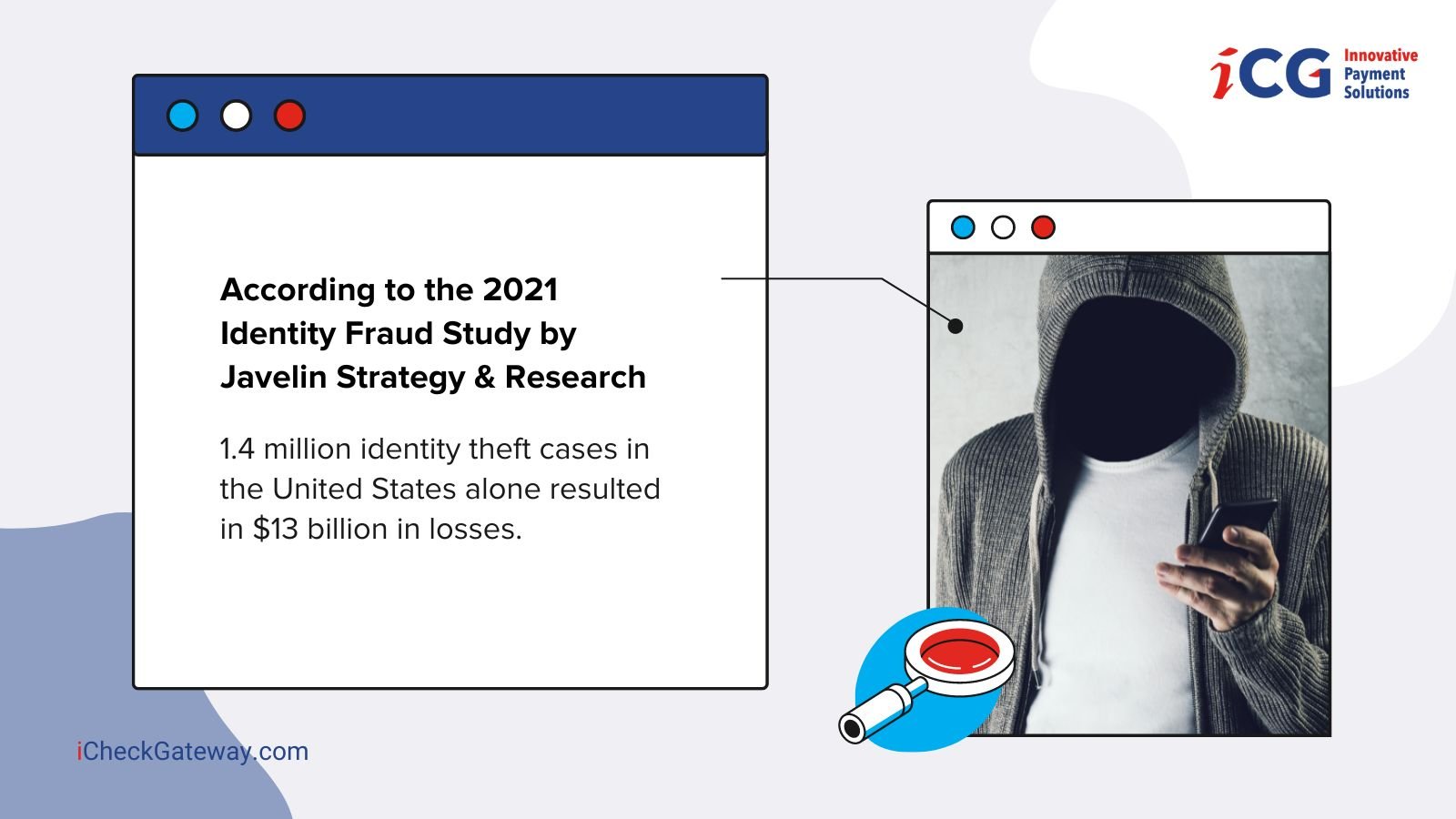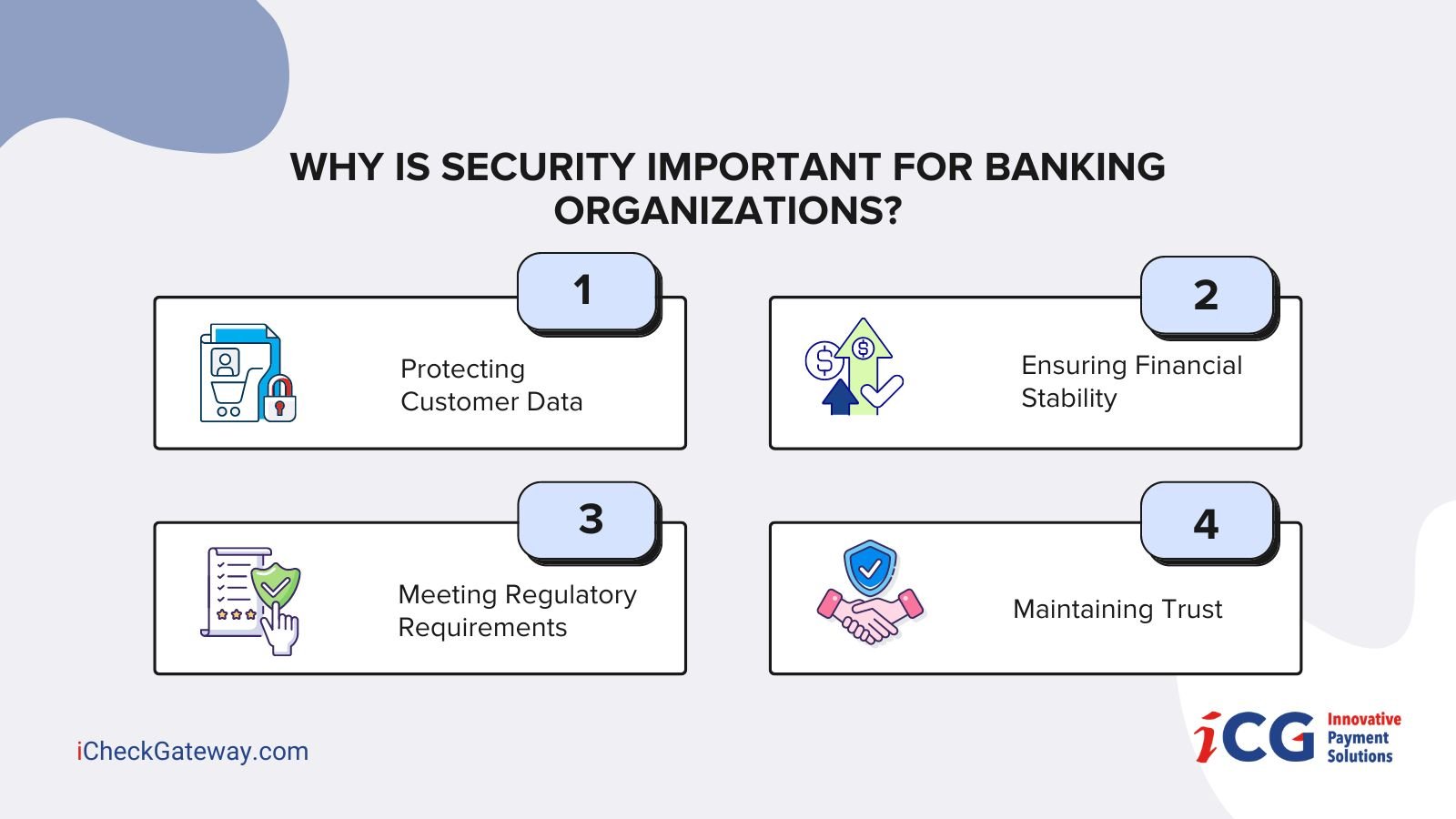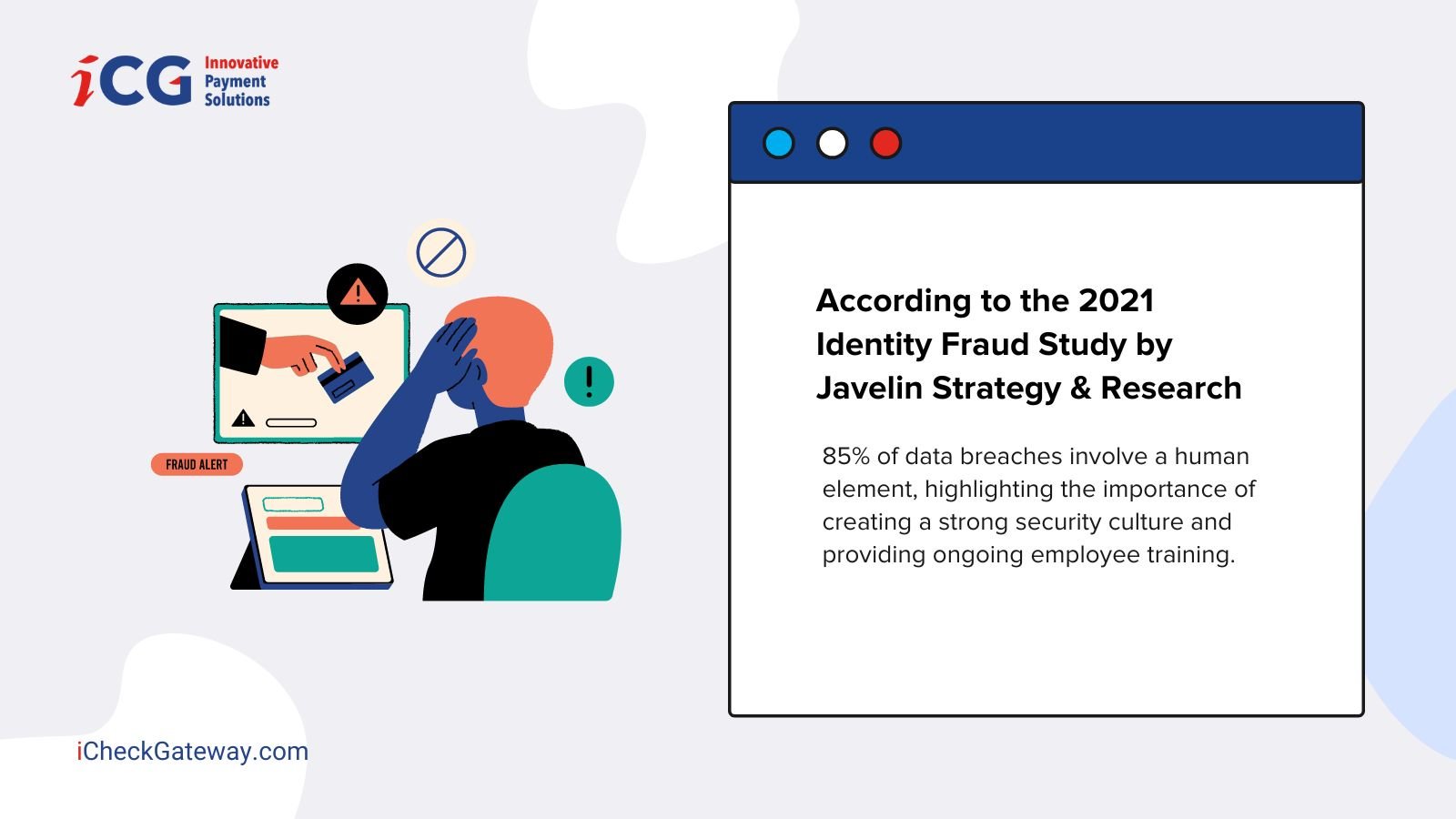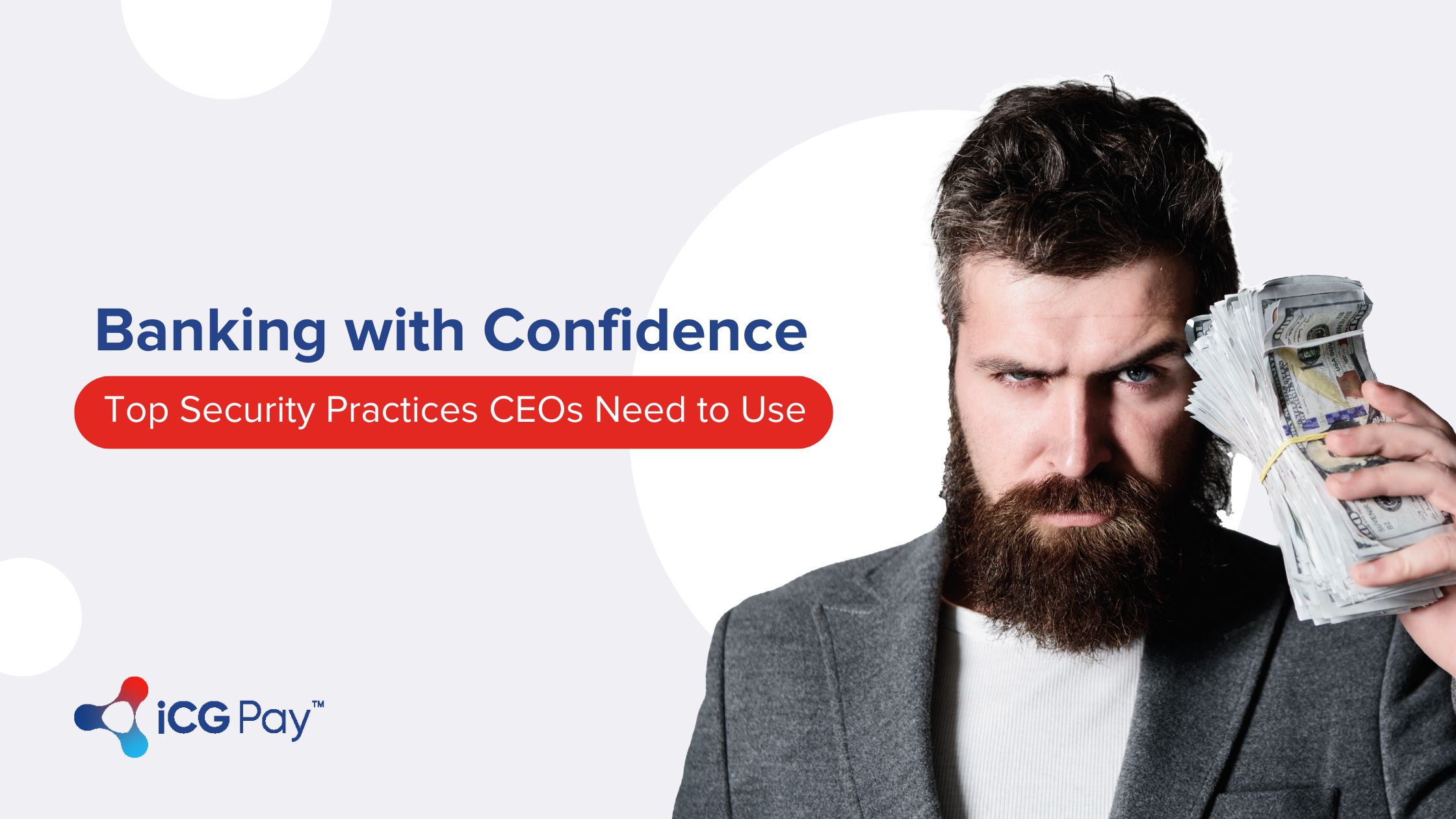“Banking is no longer somewhere you go. It’s something you do,” Australian futurist Brett King says.
The user experience of banking with a smaller credit union needs to be similar to that of larger banks. Often, smaller financial institutions do not have the resources to compete with the more significant players in the market. Therefore, working with a fintech, instead of replacing their legacy systems with a newly hired technology team, is the best bet.
Today, most smaller banks work on the same antiquated and clumsy systems they have relied on for decades. This slower adoption of the digital revolution makes it difficult for them to innovate. Being a banking industry pioneer doesn’t need to be a lone ranger experience. They cannot afford to let their commercial clients fumble through applications for business loans to invest in their company.
At iCheckGateway.com, security comes before everything else. As an organization that believes in leading with technology, we understand cybersecurity and fraud prevention in banking are crucial for CEOs.
According to the 2021 Identity Fraud Study by Javelin Strategy & Research, 1.4 million identity theft cases in the United States alone resulted in $13 billion in losses.
As cyber-attacks continue to rise, CEOS must implement the best security practices to mitigate the risk of fraud and safeguard sensitive financial information.
This blog will share our expertise and provide a comprehensive guide for CEOs to establish top security practices in their organizations. We will cover data security best practices for banks to protect them from cyber threats, including account takeover attacks, phishing scams, and ransomware, and offer actionable steps to combat them. We will also highlight the importance of employee education and training in maintaining a secure payments environment.
By following the cybersecurity for financial institutions outlined in this guide, CEOs can avoid fraud and maintain a competitive edge in the industry. These online banking security measures will also help them build customer trust, strengthen their reputation, and achieve long-term success.

Why Is Security Important for Banking Organizations?
The banking industry has always been a prime target for cybercriminals because of the sensitive financial information it holds. In fact, according to a 2021 report by the Federal Reserve, payment fraud is one of the most common types of cybercrime experienced by financial institutions, with losses totaling over $2.2 billion in 2020 alone. Here are some other key reasons why security is crucial for banking organizations:
- Protecting Customer Data
- Ensuring Financial Stability
- Meeting Regulatory Requirements
- Maintaining Trust
In today’s digital landscape, security is no longer an option but a necessity for banking organizations. By implementing top security practices, banks can protect their customers’ financial data, ensure financial stability, meet regulatory requirements, and maintain trust.

Best Security Practices for CEOs and Executives
Here are some of the best security and risk management practices that CEOs and other executives should consider:
-
Establish a Strong Security Culture: Create a security-focused culture within your organization that prioritizes security at every level, from employee training to management practices. April 2023 SpyCloud published numerous statistics where a failure to remain diligent in protecting sensitive data led to the inability to hold account funds. Security thought leaders call this ATO, Account Take Over. Studies show that 22% of U.S. adults have been victims of ATO, equaling about 24M households.
-
Implement Robust Security Policies and Procedures: Develop a set of security policies and procedures to address potential risks and ensure all employees follow them.
-
Use Advanced Security Technologies: Implement advanced security technologies like multi-factor authentication in banking, encryption, and intrusion detection systems to protect personal information against cyber threats.
-
Conduct Regular Security Audits: Regularly review and assess the effectiveness of your security measures to identify and address any vulnerabilities before they are exploited.
According to a 2021 report by Verizon, 85% of data breaches involve a human element, highlighting the importance of creating a strong security culture and providing ongoing employee training.

How Banking Executives Can Ensure Compliance with Regulatory Requirements
Compliance with regulatory requirements is critical for banks and financial institutions. The Gramm-Leach-Bliley Act (GLBA) and the Federal Financial Institutions Examination Council (FFIEC) guidelines are just two regulatory requirements that banking organizations must comply with. Failure to comply with these norms can result in significant fines, reputational damage, and legal consequences. Here are some ways banking executives can ensure compliance with regulatory requirements.
- Stay Up to Date: Keep abreast of the latest regulatory requirements and guidance by attending industry conferences, subscribing to industry publications, and regularly consulting with legal and compliance experts.
- Conduct Regular Risk Assessments: Identify potential risks to customer data and financial stability, and develop strategies to mitigate the cybersecurity risks. 24% of victims of ATO fraud had contact information (such as an email address or phone number) changed after an ATO incident.
- Implement Comprehensive Security Measures: Develop comprehensive security measures for fraud prevention that comply with regulatory requirements and industry best practices.
According to a 2021 Identity Theft Resource Center report, the financial industry accounted for 9.6% of all data breaches in 2020. Preventing hackers from accessing their customers’ bank accounts and financial transaction information is undoubtedly one of the number one priorities for modern-day banks.
Real-World Examples of Successful Security Strategies
Successful security strategies implemented by banking organizations can serve as a model for other organizations. Here are some examples of successful security strategies and their benefits:
-
JPMorgan Chase: The banking giant implemented a comprehensive security program that includes 24/7 monitoring of its network and systems, regular penetration testing, and extensive employee training. As a result, JPMorgan Chase has not experienced a significant data breach in several years.
-
Bank of America: Bank of America uses advanced fraud detection technologies to identify and prevent fraudulent transactions. In 2020, the bank stopped $2.2 billion in fraud attempts, highlighting the effectiveness of its security strategies.
-
Capital One: Capital One implemented a comprehensive data classification system that categorizes all data based on its sensitivity level. This has helped the bank prioritize its security efforts and minimize the risk of data breaches.
These successful security strategies demonstrate the importance of implementing comprehensive security measures, prioritizing employee training, and using advanced security technologies to protect against cyber threats and maintain compliance with regulatory requirements.
What's Next?
Banks are adopting next-generation machine learning and AI technologies to prevent data breaches in today’s digital banking landscape. They are paying utmost attention to financial transactions, fraud detection, and cyber threats to minimize the leakage of sensitive personal and customer data.
Partnering with a reliable payment processor like iCheckGateway.com can help banks establish secure online banking channels, stay ahead of evolving cyber threats, and ensure their payment stack is safe and compliant with industry standards.
Don’t wait until it’s too late - take action to protect your organization and your customers’ financial information.




